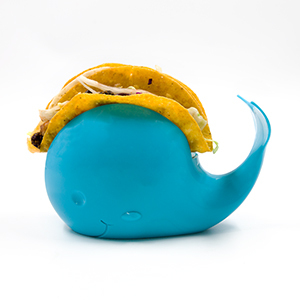Haven’t opened them yet.
Give them a coat of linseed oil (food save) to avoid them soaking up juices (veg + meat)
I used mineral oil for the same effect.
Probably a good idea! I wasn’t sure what what linseed was, so I looked it up… I’ve heard of it before of course, but I had no idea that it was from flax.
For real. Our bamboo cutting boards are ok, but after a few months of use we can only use them for savory dishes, because everything tastes like onions
Huh, I’ve never noticed that with maple boards and I don’t oil ours. Maybe that’s a peculiarity of bamboo? I have an annoyingly good nose and don’t smell anything on them after they’re washed and let dry.
It’s less of an issue with true hardwood like maple. For all the talk of bamboo dulling knives, I think it’s actually fairly soft in term of porosity.
But the place I always notice it is in pancakes, for whatever reason. My partner will make a big mess of pancakes for the kids on the weekends and stack then up on the cutting board, and if I grab one off the bottom of the stack, it very noticeably will taste of onions and herbs.
Watch out, Bamboo is so hard it will dull your knifes. But those do look like some nice cutting boards.
Huh, that’s explains the accelerated rate I have to sharpen my knives since I got those beautiful bamboo cutting boards.
Remember to keep them clean and dry. Wash after use immediately every time or you’ll et mold.
I had heard Bamboo was resistant to that sort of thing?
(It’s still good advice, more an academic question)
Resistant does not mean it can’t get moldy. Just less likely if treated well.
All wooden boards need to be cleaned and well dried before storage to prevent mildew and warping. I wash both sides of my thicker boards even if I just used one so that it doesn’t warp while drying. Also I dry them standing on edge so it dries evenly. Just a longevity thing if you spent good money for a good board. If it’s a $5 board from Walmart, do whatever, just be clean.
Good advice. It does depend on your environment, though. I live in the mountains where it’s super dry all the time, and we basically never get mold on anything. As long as it’s not literally dripping, I can put a cutting board away in a cupboard still wet and it will be bone-dry in an hour.
Honestly I have a meaty endgrain cutting board, and unless it gets wet, I usually leave it alone.
It gets an oil and wax as needed (the colour fades, for example)
I like the tiny round one
Nice … I should really buy some new ones myself.
I bought one about ten years ago. It broke in half, so I rounded the corners, sanded it and made two smaller boards that are easier to use and store.
I’ve been using the same single cutting board for a while now, and realized that I could you know, buy more at any time. I’m not sure why I do that with things.
Consumerism … we’re all conditioned to think that we need to keep buying things in order to function. Our ancient ancestors used to build and make things to last a lifetime. I’m Indigenous Canadian and I grew up poor and I remember seeing old people in my family collect and save plastic garbage bags and plastic bags because they were so amazed that this useful material was available everywhere. I grew up being taught that you have make everything last as long as possible and save everything you come across because you never know when you will live without these things.
What kind of finish you gonna put on them?
I hadn’t considered that. The linseed suggestion sounds good, assuming they’re not already finished with something that would interfere with that.
Raw Linseed oil can work, though it is still an organic oil and can go rancid.
I (personally) stick to white/food grade mineral oil and finish with a paste made from melting beeswax into warm mineral oil.






